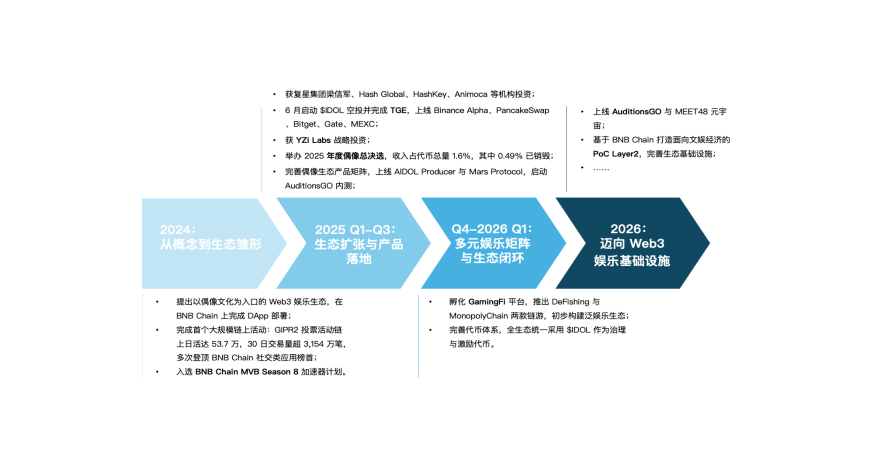New Progress in "Stock Tokenization": Galaxy Launches Native U.S. Stock Tokens, Achieving On-Chain Equal Rights
"Equal rights between tokens and stocks" is a prerequisite for the large-scale adoption of stock tokenization, but an even bigger issue lies on the circulation side.
Original Title: "‘Stock Tokenization’ Enters a New Era as Galaxy Launches First Native US Stock Token"
Original Author: Azuma, Odaily
The booming trend of "US stock tokenization" has once again evolved into a new approach.
Last night, Galaxy Digital (GLXY), a cryptocurrency giant already listed on Nasdaq, officially announced that it will collaborate with Superstate—a transfer agent registered with the SEC and previously invested in by Galaxy Ventures—to tokenize GLXY’s Class A common stock on the Solana chain. This marks the first time in history that a US-listed company has proactively attempted to tokenize its shares on a public blockchain—unlike the current mainstream "mapped" or "wrapped" US stock tokenization schemes, which are managed by third parties responsible for minting and redemption, these on-chain GLXY tokens are not "wrapped assets" but actual on-chain shares, enjoying the same financial and legal rights as their off-chain counterparts.
According to Galaxy Digital, stock tokenization involves a series of complex processes including issuance, record-keeping, custody, settlement, reporting, brokerage, and trading. Due to the previous lack of clear regulatory guidelines, the few players experimenting with US stock tokenization have adopted relatively simple "mapping" or "wrapping" models. The flaw in this old model is that token holders do not have actual rights to the underlying company shares. To truly popularize stock tokenization, this issue must be resolved.
Implementation Mechanism
Galaxy Digital’s solution is to develop a clear on-chain process and architecture that enables the true tokenization of existing shares—not mapping, not wrapping, but directly putting real shares on-chain.
According to disclosures from Galaxy Digital and Superstate, this collaboration is based on Superstate’s stock tokenization platform, Opening Bell. Through this platform, users can convert GLXY’s Class A common stock one-to-one into tokenized shares. The specific process is as follows:
· Complete KYC registration with Superstate (about 10 minutes to register, 2 hours for verification).
· Instruct your broker to transfer the stock to Galaxy’s transfer agent Equiniti via the "Direct Registration System" (DRS) (about 3 business days).
· Contact Equiniti to transfer the shares to Superstate’s "on-chain available account" (about 4 hours processing).
· Superstate mints GLXY tokens 1:1 and delivers them to your Solana wallet (about 10 minutes).
· From then on, you can freely store, transfer, or trade with other registered users.
· To revert to the traditional form, simply reverse the above process.
Galaxy Digital explains that the above process is designed to ensure a one-to-one correspondence between on-chain GLXY and Nasdaq-listed shares. Any shareholder who completes Superstate’s compliance registration can convert their GLXY shares into tokenized shares on Solana. If you do not currently hold GLXY shares but wish to purchase tokens on-chain, you only need to register with Superstate and then buy on-chain GLXY tokens from existing holders.
Since the on-chain GLXY is still in its early stages, on-chain liquidity is not yet sufficient, so the current on-chain process is relatively cumbersome. However, as on-chain liquidity gradually accumulates in the future, most users will not need to personally participate in this complex process.
Additionally, Galaxy Digital further stated that due to unclear regulatory rules regarding DEXs, the company currently does not support trading these stock tokens on Solana’s automated market makers (AMMs) or other fully decentralized exchange mechanisms. The company’s plan is to gradually expand trading venues as US securities regulators provide clearer guidance, ultimately enabling tokenized shares to be traded directly on AMMs and decentralized exchanges. This means that before a more mature and transparent secondary market emerges, there is no guarantee of liquidity for on-chain GLXY. However, bilateral trading is still possible between wallet addresses that have completed Superstate compliance registration.
Potential Risks
According to proactive disclosures from Galaxy Digital, the on-chain version of GLXY may face the following three potential risks.
The first is the risk of wallet theft or loss. Holders of GLXY tokens may lose access to their wallets. If the key is lost, Superstate can reissue the tokens to a new wallet controlled by the shareholder—since Superstate tracks all on-chain transfers of tokenized GLXY among shareholders and knows the identity of all shareholders, it can destroy unrecoverable tokens and reissue them to the shareholder’s new wallet. It should be noted that while GLXY stock tokens can be restored in the event of wallet key loss, other assets in the wallet cannot be recovered.
The second is the risk of price disparity between tokenized GLXY and traditional GLXY shares. The price of traditional GLXY shares may deviate from that of tokenized GLXY. The on-chain stock market is still in its early stages, and even if AMM trading is enabled in the future, there is no guarantee that tokenized GLXY will form or maintain a sufficiently liquid and orderly market. This could lead to fragmented liquidity, hindered price discovery, widened bid-ask spreads, and long-term price divergence between tokenized and traditional GLXY, especially if arbitrage is restricted by operational or regulatory constraints. The core method to bridge price gaps between different markets is to establish a simple two-way exchange bridge. Galaxy Digital has already built such a bridge, allowing one-to-one swaps between on-chain tokens and off-chain shares. However, it may take time for this bridge to become normalized, so arbitrage mechanisms may still be hindered in the short term.
The third is regulatory uncertainty risk. The SEC may still disallow Galaxy Digital from tokenizing common shares in this manner. Although Galaxy Digital believes that the tokenization process is elegantly designed to comply with existing securities regulations, there is still a possibility that the SEC may reach a different conclusion. If regulators determine that the platforms, mechanisms, or participants involved in secondary market trading of tokenized GLXY do not meet legal requirements, Galaxy Digital or market participants may face enforcement actions, fines, or be required to revoke or restructure certain parts of the project. If Galaxy is required to halt its on-chain share program, Superstate can pause the token contract, recall all tokenized shares, and work with on-chain shareholders to convert them back to traditional shares and deliver them to the traditional market system. This process may take a long time, and shareholders may find it difficult to trade during this period.
Brief Review and Outlook
Overall, the solution proposed by Galaxy Digital in cooperation with its investee Superstate mainly provides a clearer on-chain process and structure than other third-party US stock tokenization service providers, and as the issuer, Galaxy Digital can clearly define the rights status of the issued tokens. This is significant in addressing the mismatch of rights between traditional "wrapped" US stock tokens and real shares.
Galaxy Digital believes that "equal rights between tokens and shares" is a prerequisite for large-scale adoption of stock tokenization. We fully agree with this and tend to believe that Galaxy Digital’s solution can solve this problem on the issuance side. However, the bigger issue lies on the circulation side—currently, only registered users of Superstate can hold GLXY tokens; GLXY does not yet support trading between DEXs and can only be traded bilaterally among Superstate registered users; even if DEX support is added in the future, the state of liquidity remains unknown... Compared with the complete experience provided by traditional securities trading systems, such restrictions will hinder users from migrating on-chain.
Solving the "equal rights issue" can only break the psychological barrier for users before entering the market, but to truly attract and retain users, much work remains to be done in continuously optimizing liquidity and user experience.
Disclaimer: The content of this article solely reflects the author's opinion and does not represent the platform in any capacity. This article is not intended to serve as a reference for making investment decisions.
You may also like
Kodiak launches Berachain native perpetual contract platform—Kodiak Perps, enhancing its liquidity ecosystem
The native liquidity platform of the Berachain ecosystem, Kodiak, recently launched a new product, Kodiak Perps,...

Mars Morning News | Michael Saylor calls: Buy Bitcoin now
Trump Media & Technology Group’s Q3 losses widened to $54.8 million, and it holds substantial amounts of bitcoin and CRO tokens; US consumer confidence has fallen to a historic low; a whale bought the dip in ZEC and made a profit; a bitcoin whale transferred assets; Michael Saylor called for buying bitcoin; the Federal Reserve may initiate bond purchases. Summary generated by Mars AI. The accuracy and completeness of this content is still being iteratively updated by the Mars AI model.

MEET48: From Star-Making Factory to On-Chain Netflix — How AIUGC and Web3 Are Reshaping the Entertainment Economy
Web3 entertainment is moving from the retreat of the bubble to a moment of restart. Projects represented by MEET48 are reshaping content production and value distribution paradigms through the integration of AI, Web3, and UGC technologies. They are building sustainable token economies, evolving from applications to infrastructure, aiming to become the "Netflix on-chain" and driving large-scale adoption of Web3 entertainment.

Digital Euro: Italy Advocates for a Gradual Implementation

